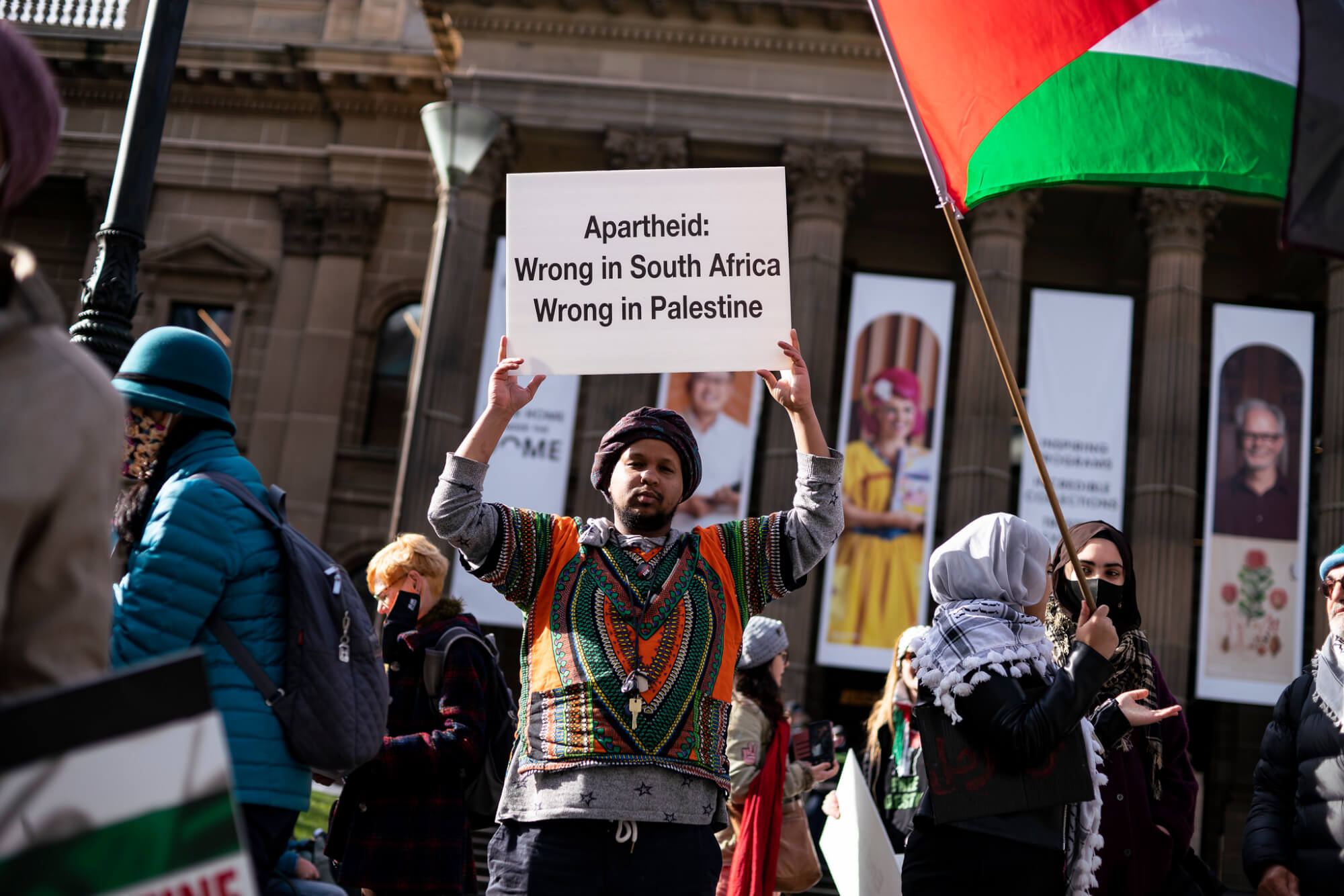
Solidarity through music. That is what this Palestinian-South African Ballad of Love is all about. South Africans and Palestinians have a very special relationship – they are the victims of the most brutal political regimes that humanity has ever produced, settler colonialism and Apartheid.
In both cases, there was a denial of the crimes against humanity committed against the indigenous populations. The amount of human suffering in South Africa has left psychological scars deep on people’s psyches. In Palestine The Horror! The Horror! is carried out by Apartheid Israel with full impunity, supported by an international conspiracy of silence.
In both countries, people have shown creative forms of resistance as means of survival against Apartheid’s killing machines. The equation became very clear: to resist is to exist. And resistance came at a heavy price. On the one hand, brutal rule by scoundrels; and on the other, resilience with dignity. This was expressed in music. Songs were, and still are, sung to lament fallen heroes and to mobilize the masses to resist injustice. In South Africa, Senzeni Na (What have we done?) was one of those anti‐Apartheid folk songs commonly sung at funerals and in demonstrations.
What have we done?
Our sin is that we are Black?
Our sin is the truth
They are killing us
Let Africa return
And in Palestine, almost every single singer has tried to sing Yamma Muwail el Hawa, a ballad that has become a collective lament bemoaning that “we are ruled by scoundrels”. In a way, it has become the song of Dignity. While Senzeni Na was first sung in the 1950’s, the origin of Muwail el Hawwa is unclear, but it has been around since the British occupation of Palestine. Both songs are laments in memory of deaths at the hands of “scoundrels” but they are also meant as songs of hope and resistance.
Oh mother! What is with the wind?
(The Ballad of love is my Ballad)
Oh mother! what does it want from me?
I’d rather be stabbed by daggers
than be ruled by a scoundrel
I wish my eyes were an ocean
And I hide you under my eyelids
And we live a life of freedom forever
and I walked under the rain
and the rain quenched my desire
and when the summer came
it ignited a flame inside me
for as long as my life remains
it will be a fight for freedom!
Palestinian activist and artist Haidar Eid has worked with the South African band The Mavrix (Jeremy Karodia and Ayub Mayet) on this fusion of both songs and came up with this Ballad of Love as what might be considered the first Palestinian-South African song of resistance.
[embedded content]
